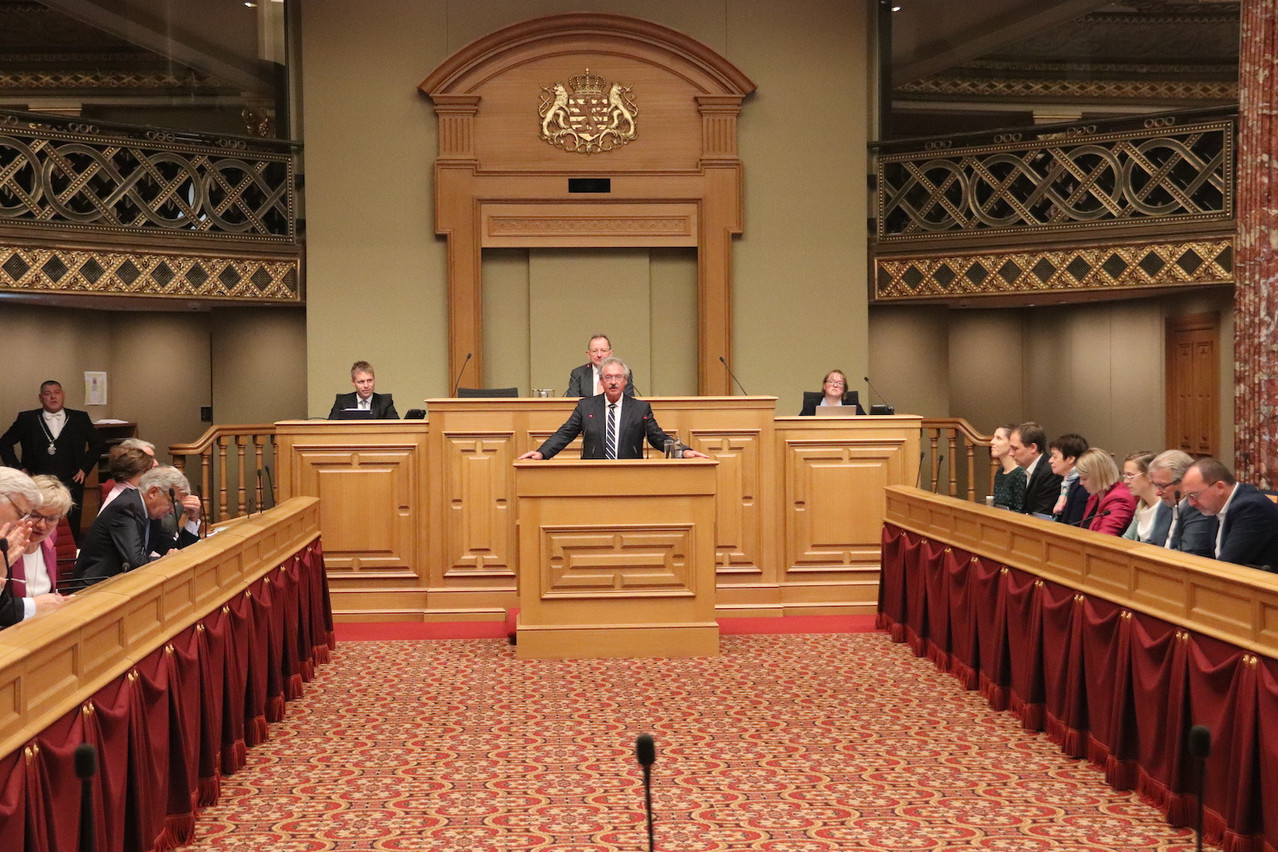Asselborn (LSAP) every year towards early November updates members of parliament on the government’s foreign policy strategy. Here are 10 takeaways:
- Rule of law: “Without rule of law democracy isn’t possible,” Asselborn said, adding that EU countries violating rule of law are playing with fire. A mechanism tying EU funds to countries respecting the rule of law must be implement by the European Commission, the minister said. “It is more and more difficult to explain to citizens why countries that are among the biggest recipients of EU funds have governments that ignore EU values.”
- Human rights due diligence: Asselborn said that Luxembourg has been pushing for an EU directive that would set bloc-wide minimum standards on human rights due diligence obligations for companies. Activists have long been pushing for national legislation and Asselborn said a working group is establishing what such laws could be like, what companies would be affected, how the rules would be enforced and violations punished. Should an EU proposal not be forthcoming, Luxembourg is ready to forge ahead on its own, he said, without, however, giving a deadline how long the country will wait.
- Climate crisis: “We don’t have any time to lose,” Asselborn said about the climate crisis, adding that it’s too soon to tell whether the Cop26 climate summit in Glasgow, which concludes on 12 November, will be a success. Luxembourg has signed pledges to end deforestation and reduce methane emissions and will increase support for developing countries to fund the climate transition, Asselborn said.
Global politics
- Migration, Afghanistan: Luxembourg’s foreign minister called the withdrawal of Nato troops from Afghanistan a “debacle”, adding that the grand duchy is committed to providing asylum for at-risk Afghans. However, he also said that progress on a new EU migration pact has stalled. Asselborn called for “mandatory solidarity” meaning each country is allocated their share of refugees to help alleviate the burden for EU countries on whose borders many asylum seekers arrive, for example in the Mediterranean. “Respect for human rights and international law must be at the centre of everything we do.”
- China, USA, Russia: “China is and remains an important partner for us,” Asselborn said, adding, however, that the EU would discuss common interests while pushing the Middle Kingdom on human rights abuses in Xinjiang province and Hong Kong, and pursuing de-escalation on Taiwan.
While the US is back at the negotiating table after the Trump presidency, Asselborn said that this alone does not solve all problems and that the result after 10 months of the Biden administration is mixed. “America is back, but that’s not enough,” he said, warning of a stand-off between the US and China on the one side, and Russia and the EU on the other.
“Russia and the European Union are drifting apart,” Asselborn said, saying that there could be areas of cooperation on climate change, energy and the Middle East peace process. For this to happen, trust must be rebuilt, he said.
- Africa: “Africa is a continent of enormous opportunities and potential where Europe must show its own interests. Especially now when other players are strengthening their presence in Africa, Europe and its values must be represented,” Asselborn said. Africa cannot only be seen as a recipient of aid and source of migrants, but as a partner, the minister said.
- Israel: Speaking of a “vicious circle of hate, violence and destruction”, Asselborn said the window of opportunity for a two-state solution is closing. “It will soon be too late,” he said, adding that Israel and Palestine remaining one state ravaged by conflict is not a solution.
EU role
- EU enlargement: Asselborn said the EU remains committed to including the Western Balkans among its members, but that progress has been slower than hoped. Talks between Serbia and Kosovo to normalise relations have largely stalled, the foreign minister said, while rule of law obligations, freedom of expression and other expectations have not been met.
On the other hand, Asselborn said that North Macedonia and Albania had fulfilled their obligations for membership negotiations to begin and the EU must deliver what was promised.
- EU speaking with one voice: “We need a Europe that believes in itself,” Asselborn said, adding that the pandemic had brought unprecedented cooperation, for example on vaccine procurement or the NextGenerationEU support scheme. All too often, however, the EU does not speak with one voice, Asselborn said. The EU must be present in an increasingly polarised world. “The answer is: more Europe,” he said.
- EPPO, EuroHPC: Luxembourg is pushing to host more EU institutions in the field of justice, finance and digitalisation, Asselborn said. The European Public Prosecutor’s Office, based in the grand duchy, currently counts 130 staff, he said, adding that the team would grow by 118 people next year. In addition, the team of the EuroHPC headquarter in Luxembourg--which manages a network of high-performance computers in the EU--will grow from 15 people currently to 47 next year and 57 in 2023.
